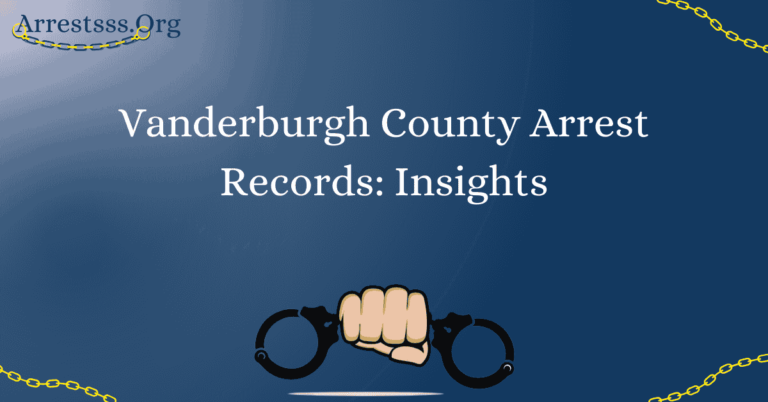Education in Kentucky: Insights and Trends

Education is the cornerstone of progress and development, and in the heart of the United States lies Kentucky—a state with a rich educational heritage and a commitment to nurturing its future generations. In this comprehensive article, we delve into the realm of education and schools in Kentucky State, exploring various aspects, challenges, and advancements in the state’s educational system.
Kentucky’s Educational System
Kentucky boasts a diverse and vibrant educational landscape, catering to the needs of its diverse student population. The state offers various schooling options, including public schools, private schools, charter schools, and homeschooling. Public schools, under the purview of the Kentucky Department of Education, form the foundation of the state’s educational system. These institutions offer free education to students from kindergarten through high school, providing a comprehensive and standardized curriculum designed to equip students with essential knowledge and skills.
In addition to public schools, Kentucky embraces the diversity of educational approaches through private schools. These institutions offer alternative curricula, often with religious or specialized focuses, providing families with choices that align with their educational philosophies and values. Charter schools, another facet of the state’s educational landscape, emphasize innovation and flexibility in teaching methods, empowering educators to tailor their approaches to meet the unique needs of their students.
For families seeking more personalized and flexible learning experiences, homeschooling remains a popular option. Homeschooling in Kentucky adheres to state guidelines for academic standards and assessments, offering families the freedom to tailor education to their children’s learning styles and interests.
Historical Perspective: Education in Kentucky
To truly understand Kentucky’s educational system, it’s essential to delve into its historical perspective. The state has a rich heritage of educational progress and transformation. Over the years, Kentucky has faced various challenges in its quest to provide equitable and quality education to its citizens. However, it has also achieved significant milestones that continue to shape its present-day educational landscape.
One of the most remarkable and transformative moments in Kentucky’s educational history was the Kentucky Education Reform Act (KERA) of 1990. This landmark legislation aimed to revamp the state’s education system comprehensively. KERA introduced several crucial elements, such as statewide testing, performance-based assessments, and increased funding for underprivileged schools. The act’s primary goal was to raise the overall academic performance of Kentucky students and bridge the achievement gaps among various student groups.
Current Challenges in Kentucky Education
Despite its efforts and achievements, Kentucky’s educational system faces ongoing challenges that demand attention and innovative solutions. One of the most pressing concerns is the persistent achievement gaps among different student groups. Addressing these gaps and ensuring equitable access to quality education for all students remain essential priorities for the state.
Adequate funding for schools and the fair distribution of resources pose another significant challenge. Providing sufficient financial support to schools in both urban and rural areas is crucial to creating a conducive learning environment for students and enabling educators to implement effective teaching strategies.
Teacher shortages and the need for continuous professional development for educators are critical issues that Kentucky is actively addressing. The state recognizes the pivotal role of teachers in shaping young minds and is committed to attracting and retaining skilled and dedicated educators to ensure a high standard of education for all students.
Advancements in Educational Technology
In the digital age, technological advancements have made a profound impact on education, and Kentucky has not been left behind in embracing these changes. Educational technology, commonly known as EdTech, has become an integral part of Kentucky’s classrooms, revolutionizing the way students learn and educators teach.
Interactive whiteboards, tablets, and other technological tools have transformed traditional lectures into dynamic and engaging sessions. These resources allow educators to deliver personalized instruction that caters to different learning styles, enabling students to grasp complex concepts more effectively. Furthermore, educational technology facilitates self-paced learning, empowering students to explore subjects at their own speed and delve deeper into areas of interest.
E-learning and blended learning initiatives have gained popularity in Kentucky schools. Blending traditional classroom instruction with online resources provides students with greater flexibility in accessing educational materials and learning at their own pace. This approach not only supports diverse learning needs but also fosters the development of vital 21st-century skills, such as digital literacy and self-directed learning.
Innovative Teaching Approaches in Kentucky
Kentucky educators are continuously exploring innovative teaching methodologies that encourage critical thinking, creativity, and problem-solving. Project-based learning has gained momentum, with educators designing projects that challenge students to apply their knowledge to real-world scenarios. By engaging in hands-on projects, students not only grasp academic concepts more profoundly but also develop essential life skills, such as teamwork and communication.
Another innovative teaching approach making waves in Kentucky classrooms is the flipped classroom model. This approach reverses the traditional teaching method by delivering instructional content outside of class, often through video lectures or online materials. Classroom time is then utilized for in-depth discussions, group activities, and practical applications of the concepts learned. The flipped classroom model enables teachers to focus on addressing individual student needs during face-to-face interactions, creating a more personalized and enriching learning experience.
Personalized learning strategies have also found their place in Kentucky schools. Recognizing that each student has unique learning preferences and strengths, educators strive to tailor their approaches to meet these individual needs. By allowing students to take more ownership of their learning journey, personalized learning fosters a deeper understanding of subjects and enhances student engagement.
The Role of Parent and Community Engagement
Beyond the confines of the classroom, parents and the local community play vital roles in the success of Kentucky’s educational system. Research consistently demonstrates that active parental engagement positively impacts student achievement and overall well-being. Kentucky schools actively encourage parent-teacher collaboration, open communication channels, and participation in school events to foster a sense of shared responsibility for student success.
In addition to parental involvement, strong community partnerships are essential for creating a supportive and enriching learning environment. Community organizations, businesses, and local leaders can contribute valuable resources, mentorship opportunities, and additional learning experiences for students. These collaborative efforts create a stronger sense of belonging and empower students to achieve their academic and personal goals.
Higher Education in Kentucky
As a state committed to education, Kentucky places great emphasis on higher education opportunities. The state is home to numerous colleges, universities, and technical institutions that offer diverse academic programs and research opportunities. From liberal arts colleges to technical schools specializing in various fields, Kentucky’s higher education institutions cater to a wide range of student interests and career aspirations.
To ensure access to higher education for all, Kentucky provides various financial aid programs, scholarships, and grants. These initiatives support students in pursuing their educational dreams, regardless of their financial background. By investing in higher education, Kentucky aims to cultivate a skilled workforce capable of driving economic growth and innovation across the state.
FAQ’s
What are the school options for parents seeking alternative educational approaches in Kentucky?
In Kentucky, parents seeking alternative educational approaches have several options to consider. Private schools offer unique curricula often tailored to specific religious or specialized focuses, providing families with choices that align with their educational philosophies and values. Charter schools, on the other hand, emphasize innovation and flexibility in teaching methods, offering an alternative approach to traditional public schools. For families seeking a more personalized and flexible learning experience, homeschooling remains a popular choice. Homeschooling in Kentucky adheres to state guidelines for academic standards and assessments, allowing families to tailor education to their children’s learning styles and interests.
How does technology integration benefit Kentucky students’ learning experiences?
Technology integration has significantly enhanced Kentucky students’ learning experiences by creating more dynamic and engaging classrooms. Educational technology.






